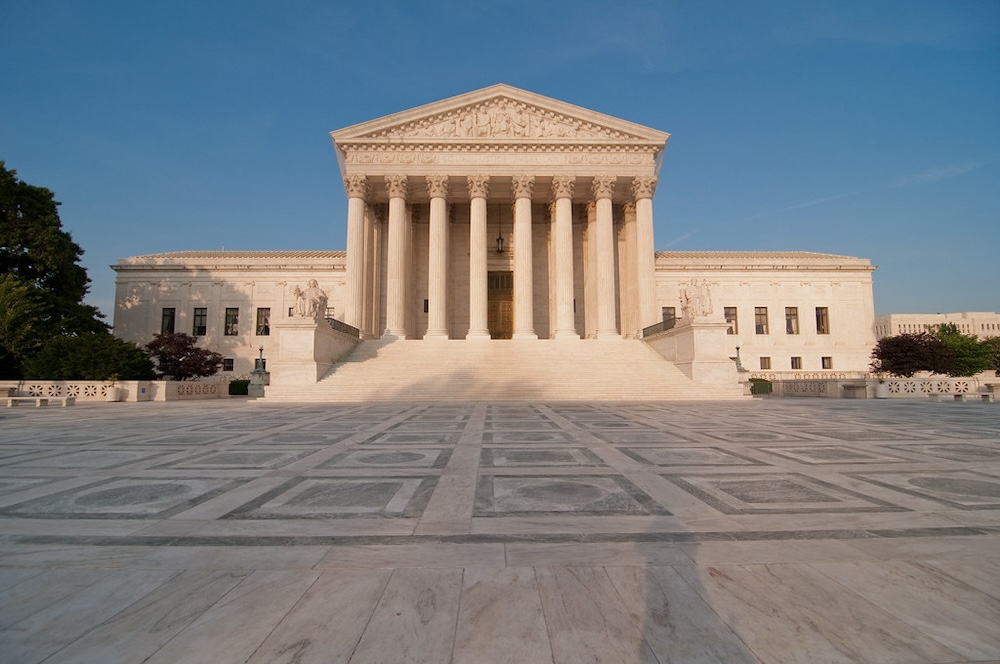Politics
JUST IN: Supreme Court Delivers MAJOR Victory On Election Integrity

The Supreme Court issued a 5-4 decision on Thursday that granted a victory to Republicans advocating for stricter voter ID laws in Arizona. The court’s decision partially upheld an emergency stay, restricting the ability of Arizona residents to register to vote without showing proof of citizenship.
The decision stems from ongoing legal disputes over a recent Arizona state law that mandates voters to provide documented proof of citizenship, even for mail-in ballots. The legal battle intensified after a federal judge last year blocked some sections of the law, leading to an appeal that eventually reached the Supreme Court.
The ruling is particularly crucial as it comes during a critical time ahead of the November presidential election and could have significant implications for voter registration laws across the United States. The court agreed to stay the district court’s judgment from May 2. The stay will remain in effect pending the resolution of ongoing appeals in the United States Court of Appeals for the Ninth Circuit and any subsequent petitions for a writ of certiorari.
Should the Supreme Court decide not to review the case further (deny certiorari), the stay will automatically terminate. If the Court grants certiorari, the stay will end when the Court issues its final judgment on the matter. The justices were divided in their opinions: Justices Thomas, Alito, and Gorsuch favored granting the stay in full, whereas Justices Sotomayor, Kagan, Barrett, and Jackson were in favor of denying the application entirely.
The Arizona GOP wrote on X, “The Constitution gives states the power to set voter qualifications, and Arizona is leading the charge to ensure ONLY CITIZENS vote in our elections. This case has the potential to prevent non-citizen voting once and for all, which should have been the case all along.”
Civil rights groups and the Arizona Democrat Party have challenged a 2022 Arizona law that mandates citizenship proof for voters, which is currently not in effect. This challenge is supported by a 2013 Supreme Court decision that restricts states from imposing such voting restrictions in federal elections.
Across the United States, voter registration forms typically require individuals to affirm under oath that they are U.S. citizens, with the risk of criminal penalties for false statements. Unique among states, Arizona demands further documentation of citizenship, such as a birth certificate or passport. According to AZCentral, approximately 42,000 Arizona residents have not met this requirement, leading to a distinctive dual-track voting system. While federal courts have consistently allowed state officials to exclude these individuals from state and local elections, they must permit them to vote in federal races, including the forthcoming presidential election, U.S. Senate race, and congressional contests.
Former President Donald Trump toured the Arizona border today, underscoring his campaign’s effort to depict Democrats as lax on border security. Speaking in Cochise County, Trump used stacks of metal beams—representing unfinished sections of the U.S.-Mexico border wall, a focal point of his first term—as a visual backdrop. Current polling in Arizona shows Trump with a slight edge over Harris.

